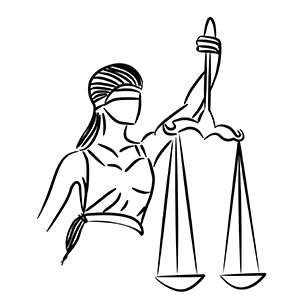There Are a Couple Of Different Ways to Get a Case Dismissed
\
Video Transcribed: How do you get a CPS case or a DHS deprived case dismissed? Hi, my name is Ryan Cannonie. I’m an Oklahoma CPS defense attorney with CPS investigation defense, and one question I get asked anytime I get involved in a DHS case or a deprived case with parents or grandparents or anyone else is, how do we get out of this case? How do we get this dismissed?
Well, there are a couple of different points you can try and get a case dismissed. Now at a show cause or emergency custody hearing, that part of the case is really just talking about who should have custody of the child. It’s an emergency hearing. It happens within two days after DHS asks for custody.
Even if you win that hearing, it doesn’t mean a case is going to go away. In fact, you can win that hearing, have your child in your custody in your home and still have to go through a court-ordered deprived case. You would just have supervision of your child or it’d be a supervision case because you’d have custody of your child during that time.
Now, if you’re in a case and stuff’s been filed against you, the first opportunity to get a case dismissed is at the adjudication hearing. If you can fight at the adjudication hearing, have an attorney get in there and kind of go to war as it were, then if the state can’t meet all the evidence it has to put forward on that, then the judge could dismiss your case at that time.
I’ve seen that happen a few times when I was a prosecutor. There were a couple of times that we got in there and it turned out that the evidence wasn’t what we thought it was. When people started testifying, they started saying a few things different than what they had told DHS. And so in situations like that then the judge would dismiss it.
 Or the prosecutor could dismiss it as well. When I was a prosecutor, we had a couple of situations where there were allegations of drug use, the child, there are allegations the child was going through withdrawal. Everyone got tested, nothing came back. It turned out it was just a medical issue so we ended up dismissing the case and not proceeding. These are the early-stage dismissals.
Or the prosecutor could dismiss it as well. When I was a prosecutor, we had a couple of situations where there were allegations of drug use, the child, there are allegations the child was going through withdrawal. Everyone got tested, nothing came back. It turned out it was just a medical issue so we ended up dismissing the case and not proceeding. These are the early-stage dismissals.
Now let’s say you go past adjudication. You’re working on a treatment plan. There are really two ways, technically three, but really two main ways a case ends. Either you work your treatment plan, everyone’s happy and then at the end, the DA and DHS and judge are all happy so they dismiss the case and you’re able to go back on with your life.
Or the state is not happy with you, may file a motion to terminate your parental rights. If they do that, then your end of a case is either a termination happens or the jury or judge, depending on what type of trial you have, does not terminate your rights.
If your rights are not terminated, technically the state can seek guardianship at that time or they can just leave the case open, try to terminate your rights again. They could give you more time to try to complete the treatment plan. Those are kind of some of the situations that would happen there.
If during the course of your case, maybe something comes up, new evidence comes up and you can try to get it dismissed that way. Really your best options for dismissal are going to be at that adjudication hearing.
And if you don’t win the adjudication hearing, then trying to work your treatment plan as best as you can and as quickly as you can just to get the case dismissed that way. All the other alternatives on dismissal or are not really worth thinking about because they’re not going to get you what you want, which is the ability for your family and you to just go on living your lives.
If you have questions about this or any other aspect of a deprived case, then please give us a call, it’s cpsinvestigationdefense.com if you want to send us a web form and let us know. Thank you.
